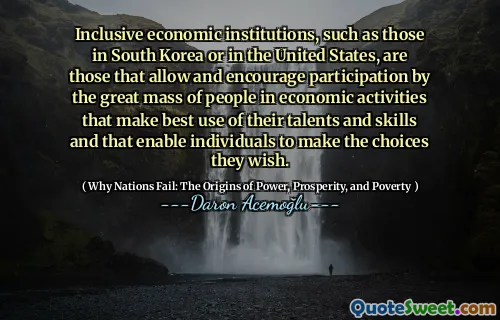
After 1688 the state began to rely more on talent and less on political appointees, and developed a powerful infrastructure to run the country.
The quote highlights a pivotal moment in the evolution of state governance, marking a shift from patronage-based appointments to a meritocratic system. This transition signifies a recognition that effectively managing a nation requires a skilled, capable workforce and institutional frameworks rather than solely political loyalty or favoritism. The year 1688, often associated with significant political and economic upheavals, such as the Glorious Revolution in England, catalyzed reforms that prioritized competence and sustainability over traditional patronage. The development of a powerful infrastructure after this period underscores an understanding that long-term stability and growth depend on robust institutions capable of functioning efficiently and impartially. This idea resonates with the concept that good governance is foundational to economic development, social stability, and national resilience. When talented individuals are entrusted with critical roles, and when systems are established to support their work, nations can better adapt to changing circumstances, foster innovation, and improve public service delivery. Moreover, the emphasis on infrastructure suggests a strategic move toward building the logistical, administrative, and legal foundations necessary for sustained progress. Such developments also imply a shift away from reliance on personal allegiances toward institutional independence and professionalism. Overall, this period can be viewed as a crucial turning point where governance practices laid the groundwork for the modern state, demonstrating how institutional reform and talent cultivation are intertwined with a country's capacity to thrive in a competitive global landscape. This historical perspective underscores the importance of continuous institutional development and human capital investment as key drivers of national success.







